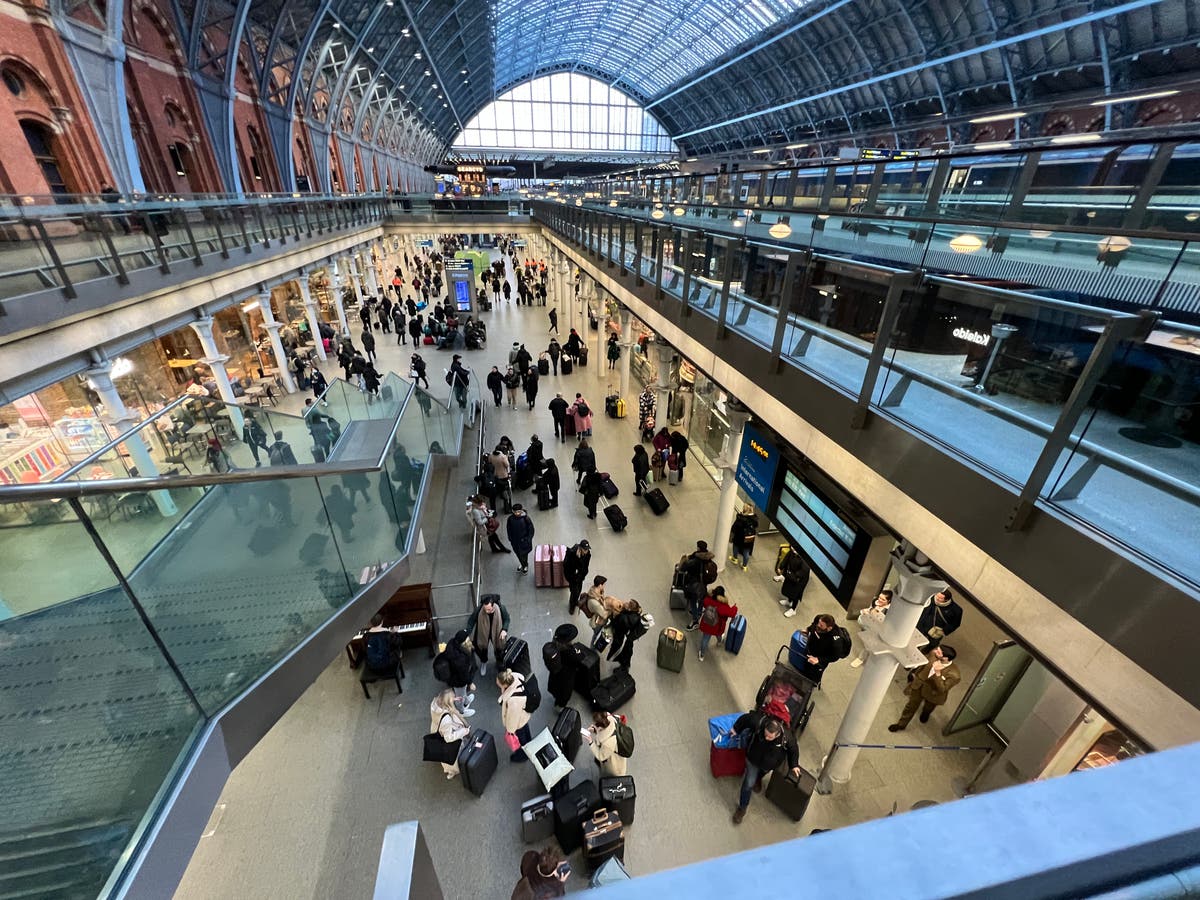This website uses cookies so that we can provide you with the best user experience possible. Cookie information is stored in your browser and performs functions such as recognising you when you return to our website and helping our team to understand which sections of the website you find most interesting and useful.

Francois Le Doze, chief commercial officer for Eurostar, was candid when I spoke to him earlier this year. “I don’t have a lot of need to do £29 promotions,” he said.
The cross-Channel intercity rail firm has not had a great few years. Eurostar depends on large numbers of passengers shuttling from London to Paris, a fair number to Lille and Brussels, and rather fewer to Rotterdam and Amsterdam.
During the Covid pandemic, traffic dried to a trickle. At the start of 2021, for example, the UK imposed a 19-week ban on all international leisure and family travel; by the end of that year, France was excluding British holidaymakers in an obviously futile attempt to slow the spread of Omicron.
As travel restrictions unravelled, anyone at the company who dared to imagine “things can only get better” clearly hadn’t heard of Brexit. As part of the UK showing Europe who’s boss, our government demanded that British travellers should be regarded as “third country nationals” by the European Union – hugely increasing the processing time at EU borders.
There happens to be just such a frontier at London St Pancras International, the Eurostar hub. It was constructed at a time when no one imagined French frontier officials would need to do anything other than check every UK passenger had a valid passport.
Our negotiators valiantly insisted on subjecting us to rules that require the border staff to check the total time spent in the European Union in the past 180 days, possibly ask about our financial means and stamp our passports. This, as you will understand, takes far more time; in the confines of a cramped area beneath a Victorian rail station, that translates to more space required.
As a result, Eurostar is having to cap the number of passengers who can be carried on its trains. In a near-monopoly market, when the supply of seats goes down, fares go up commensurately. Which is why Francois was frank about cheap seats.
Since the end of the Covid era, I have seen no £29 one-way seats on sale. But in a suddenly announced summer flash sale, until 11pm BST on Thursday 22 June, some £35 tickets are available from London to Paris, Lille and Brussels – subject to tight terms and conditions.
You can travel between 10 July and 7 September, but not at weekends. This shows squarely the trains that Eurostar is seeking to fill. For most of July, all of August and the beginning of September, business travellers who would normally take their seats on the Channel Tunnel trains vanish for the beach, leaving some seats unfilled.
Weekends, conversely, are busier than normal as families and other tourists tend to head for the continent on Saturdays and Sundays.
A sprinkling of other “black-out” dates applies: typically from London at the start of the main summer holidays in the third week in July, and over the August bank holiday weekend.
Even so, says Eurostar: “29,000 tickets are up for grabs.”
That looks a large number. But is it? Well, assuming people go for £35 each-way deals then it represents 14,500 travellers, spread over about 38 days, or about 380 per day – less than half a Eurostar train.
To complicate matters, there are 7,500 outbound tickets from London to Paris – yet 10,000 inbound. Going out from London to Lille or Brussels (it’s all the same to Eurostar), we have to fight over 5,000 tickets, while there are 6,000 coming back.
How elusive are they? I am looking at Tuesday 1 August for a week. Outbound to Paris, only the 8.01pm is available. With an arrival shortly before midnight in the French capital, this plainly does not suit anyone hoping to make an onward connection. Coming back a week later, five trains are currently available – either the first of the day (7.13am) or one of four late afternoon/early evening departures. To/from Brussels on the same dates, even though there are fewer trains you can choose from a wider spread of departures.
So hurry – in terms of cheap travel this summer, things can’t get any better.
Listen to Simon Calder’s podcast on the latest Eurostar deal



 Africana55 Radio
Africana55 Radio 
